Related Research Articles

A lottery is a form of gambling that involves the drawing of numbers at random for a prize. Some governments outlaw lotteries, while others endorse it to the extent of organizing a national or state lottery. It is common to find some degree of regulation of lottery by governments. The most common regulation is prohibition of sale to minors, and vendors must be licensed to sell lottery tickets. Although lotteries were common in the United States and some other countries during the 19th century, by the beginning of the 20th century, most forms of gambling, including lotteries and sweepstakes, were illegal in the U.S. and most of Europe as well as many other countries. This remained so until well after World War II. In the 1960s, casinos and lotteries began to re-appear throughout the world as a means for governments to raise revenue without raising taxes.
This is a collection of notable lottery jackpot records in the United States, Europe, and the Philippines, listing the largest prizes/jackpots awarded in various drawings.
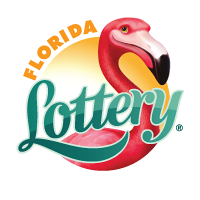
The Florida Lottery is the government-operated lottery of the U.S. state of Florida. As of 2022, the lottery offers eleven terminal-generated games: Cash4Life, Mega Millions, Powerball, Florida Lotto, Pick 2, Pick 3, Pick 4, Pick 5, Fantasy 5, Cash Pop, and Jackpot Triple Play.
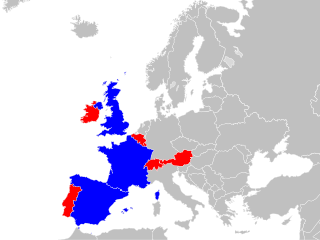
EuroMillions is a transnational lottery that requires seven correct numbers to win the jackpot. It was launched on 7 February 2004 by France's Française des Jeux, Spain's Loterías y Apuestas del Estado and the United Kingdom's Camelot. The first draw was held on 13 February 2004 in Paris. Initially, only the UK, France and Spain participated, with the Austrian, Belgian, Irish, Luxembourgish, Portuguese and Swiss lotteries joining for the 8 October 2004 draw.
Gambling in the United Kingdom is regulated by the Gambling Commission on behalf of the government's Department for Digital, Culture, Media and Sport (DCMS) under the Gambling Act 2005. This Act of Parliament significantly updated the UK's gambling laws, including the introduction of a new structure of protections for children and vulnerable adults, as well as bringing the burgeoning Internet gaming sector within British regulation for the first time.
Lotteries in Australia include various lottery related products licensed by the Lott, The Lottery Office and Lotterywest Australian lottery companies. Lotteries operators are licensed at a state or territory level, and include both state government-owned, not-for-profit and private sector companies. Most major Lotteries have now moved into the online marketplace.
The Spanish Christmas Lottery is a special draw of the Lotería Nacional, the weekly national lottery run by Spain's state-owned Loterías y Apuestas del Estado. The special Christmas draw takes place every December 22 and it is the biggest and most popular draw of the year.

The Idaho Lottery began play on July 19, 1989, and is run by the government of the state of Idaho. It is a member of the Multi-State Lottery Association (MUSL). Fifty percent of all net funds is given to public schools, while the remainder is pledged to the Permanent Building Fund, which is used as a financial resource for the state's colleges and universities.

The New Jersey Lottery is run by the U.S. state of New Jersey. Its In-house draw games are: Pick-3, Pick-4, Jersey Cash 5, Pick-6, Quick Draw, and Cash Pop. Its multi-jurisdictional draw games are: Cash4Life, Mega Millions, and Powerball. The Lottery also sells Fast Play and scratch-off tickets. The New Jersey Lottery is headquartered at One Lawrence Park Complex in Lawrence Township, Mercer County.
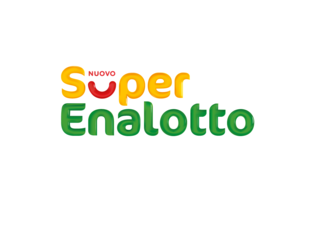
SuperEnalotto is a lottery that has been played in Italy since 3 December 1997. Draws take place on Tuesdays, Thursdays and Saturdays at 8:00 PM. The jackpots won are among the largest in the world, and the odds of winning are one of the lowest in the world.
The National Lottery is the state-franchised national lottery established in 1994 in the United Kingdom. It is regulated by the Gambling Commission, and is currently operated by Camelot Group, to which the licence was granted in 1994, 2001 and again in 2007, but will be operated by Allwyn Entertainment Ltd from 2024.

The National Lottery is the state-licensed lottery of the Republic of Ireland. Established in 1986 to raise funds for good causes, it began operations on 27 March 1987 when it issued its first scratchcards. It launched the weekly drawing game Lotto the following year, holding the first draw on 16 April 1988. The National Lottery now offers Lotto and Lotto Plus draws on Wednesdays and Saturdays, EuroMillions and Plus draws on Tuesdays and Fridays, and two Daily Million draws each day. Its other games include televised bingo, Millionaire Raffles, and online instant-win games. The minimum age to play all National Lottery games is 18.
A lottery is a form of gambling which involves selling numbered tickets and giving prizes to the holders of numbers drawn at random. Lotteries are outlawed by some governments, while others endorse it to the extent of organizing their own national (state) lottery. It is common to find some degree of regulation by governments, like allowing or prohibiting online sales of tickets.
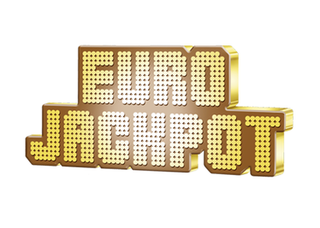
Eurojackpot is a transnational European lottery launched in March 2012. As of September 15, 2017, the countries participating in the lottery are: Croatia, Czech Republic, Denmark, Estonia, Finland, Germany, Hungary, Iceland, Italy, Latvia, Lithuania, Netherlands, Norway, Poland, Slovakia, Slovenia, Spain and Sweden.
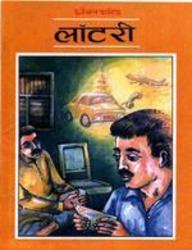
"Lottery" is a Hindustani short story. It was written by Indian author Premchand. The story is told in narrative form from the perspective of an unnamed school teacher. The story has been adapted into play format, with theatrical performances presented by Lalit Parimoo's Natsamaj Theatre Group, as well as Mujeeb Khan's Ideal Drama and Entertainment Academy.

Lottery fraud is any act committed to defraud a lottery game. A perpetrator attempts to win a jackpot prize through fraudulent means. The aim is to defraud the organisation running the lottery of money, or in the case of a stolen lottery ticket, to defraud an individual of their legitimately won prize.
Richard Lustig was an American man who came to prominence for winning relatively large prizes in seven state-sponsored lottery games from 1993 to 2010. His prizes totaled over $1 million. He wrote Learn How To Increase Your Chances of Winning the Lottery.
Evelyn Marie Adams is an American lottery winner. She won the New Jersey Lottery twice, in 1985 and 1986, for over $5.4 million combined. However, she was a compulsive gambler, and lost large sums at Atlantic City casinos and through a string of unsuccessful business deals.

Monopoly Millionaires' Club (MMC) was a series of 16 scratchcard games that differed by its participating lotteries; its players could become eligible to be flown to Las Vegas to take part in an episode of the Monopoly Millionaires′ Club game show
Lottery betting is the activity of predicting the results of a lottery draw and placing a wager on the outcome. Lottery betting is a form of online gambling, run by licensed betting firms, where players place bets on the outcome of lottery draws instead of buying physical or online tickets via official lottery operators.
References
- ↑ "National Lottery Syndicate Pack" (PDF). Syndicate Pack.
- ↑ "18th Century Lottery". All Things Georgian. 2016-07-26. Retrieved 2018-11-06.
- ↑ "Sharing the Wealth: Who Should You Form A Lottery Syndicate With?". wealthyfools.net. Retrieved 2022-09-21.
- ↑ "Running a lottery syndicate". www.gamblingcommission.gov.uk. Retrieved 2018-11-06.
- ↑ "Facebook friends syndicate banks £1.1M EuroMillions win". www.national-lottery.co.uk. Retrieved 2018-11-06.
- ↑ "The biggest lottery syndicate wins of all time". www.bullz-eye.com. Retrieved 2018-11-06.